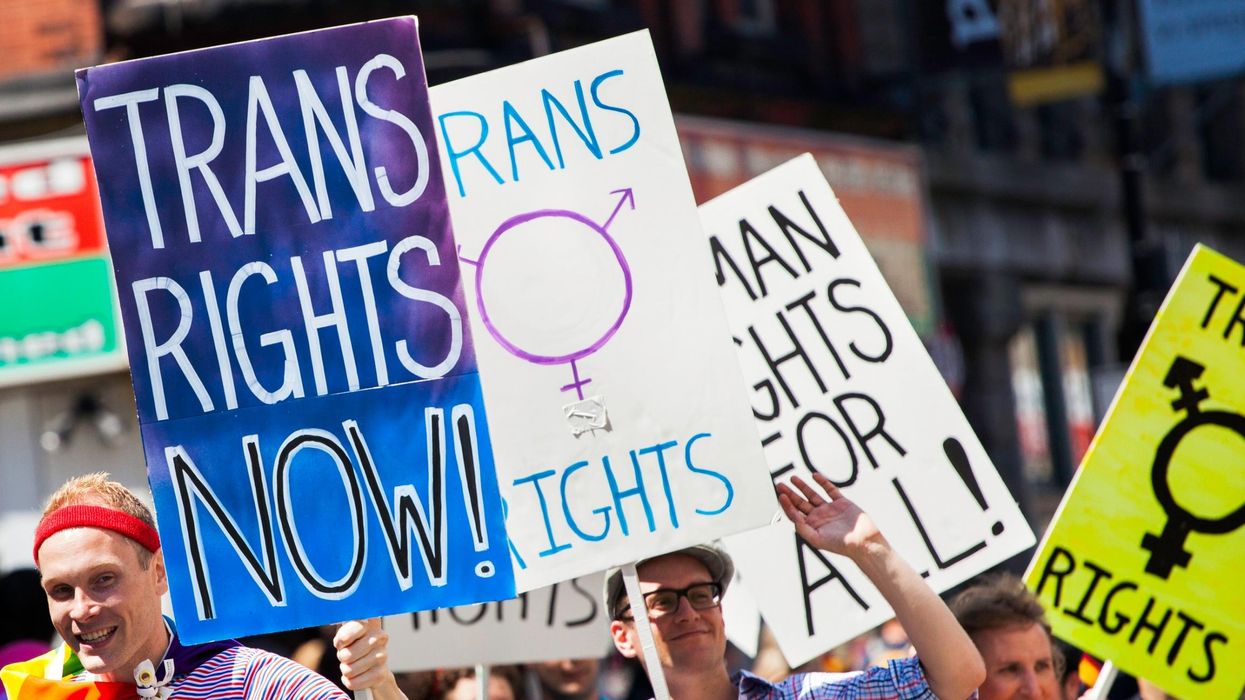Louis Staples
Mar 16, 2020

Image:
iStock
The deadline for the Scottish government’s second public consultation on reforms to its gender recognition laws is fast approaching.
The consultation, which closes on Tuesday 17 March, asks people to respond to five key questions in relation to potential changes to the current legislation.
You don’t have to live in Scotland or be trans to respond to the consultation.
Scotland’s Gender Recognition Bill will reform the process of legal gender recognition, which are the steps people have to take if they want to legally change gender.
This matters because trans people and LGBTQ+ organisations have described the current process as “intrusive”, “inadequate” and “bureaucratic”.
LGBTQ+ news site PinkNews reports that, according to UK government figures, just 4,910 trans people had actually gone through the process of getting a Gender Recognition Certificate, despite common estimates putting the UK’s trans population at more than half a million people.
The consultation takes just five minutes to complete.
If you agree with the overwhelming majority of LGBTQ+ organisations and trans people, then filling this form out is an easy, effective way to be a trans ally.
indy100 reached out to LGBTQ+ organisation Stonewall to provide more detail on why each part of the consultation is important, and potential suggestions for how to respond.
1. Do you have any comments on the proposal that applicants must live in their acquired gender for at least three months before applying for a Gender Recognition Certificate (GRC)?
Toryn Glavin, Trans Engagement Manager, Stonewall tells indy100:
The current consultation’s first question gives trans allies a chance to talk about why making trans people wait 3 months before changing their birth certificate is dehumanising and wrong.
2. Do you have any comments on the proposal that applicants must go through a period of reflection for at least three months before obtaining a GRC?
Stonewall tells indy100:
The next question proposes a three-month reflection period. Here you can talk about why this is an unnecessary bureaucratic barrier. Before ever starting to transition, trans people already do plenty of thinking and reflecting about who they are.
3. Should the minimum age at which a person can apply for legal gender recognition be reduced from 18 to 16?
Stonewall tells indy100:
The third question on age is really important, not just because lowering the age for gender recognition to 16 would bring this in line with the right to marry and vote, but you can also ask the government to go further to include those under the age of 16. Young people should be able to update their birth certificate with parental or guardian support and this is where we can make that case.
4. Do you have any other comments on the provisions of the draft bill?
Stonewall tells indy100:
The fourth question is your opportunity to tell the Scottish Government why trans equality and GRA reform matters to you. Updating the dehumanising process in place today with a system providing self-determination would be life-changing for so many trans people in Scotland.
In this section, you can also highlight that non-binary identities are still not included, so you can talk about why recognition of their identities is important.
5. Do you have any comments on the draft impact assessments?
Stonewall tells indy100:
At a time of increasing polarisation and of misinformation about what reform will mean, trans people are living through an increasingly hostile environment. That’s why it’s more important than ever that all lesbian, gay, bi and trans people, and our allies, stand together as a united community and respond to the Scottish government’s consultation. Scotland has a long and proud history of leading the way on LGBT equality and reforming the Gender Recognition Act would go a long way towards building a country where all LGBT people can be accepted without exception.
This is Scotland’s second consultation on changing its Gender Recognition process.
In 2017-18, the Scottish government consulted the public on potential changes to the current law. There were 15,697 responses, and 65 per cent of people based in Scotland said they support plans to make the process easier for trans people.
Stonewall tells indy100:
We know the majority of Scottish people support trans equality and want to see a reformed Gender Recognition Act. The Scottish Government’s 2017-18 consultation found that two-thirds of Scots (65 per cent) agree with a system of self-determination.
But last year the Scottish government delayed its plans to reform the GRA, saying it would assess any potential impact on women’s rights first, before consulting again once these findings are publicly known.
This assessment firmly rejected any idea that the proposed reforms would impact women’s rights negatively or present a risk to single-sex spaces. There have also been no obvious difficulties for other countries, such as Ireland and Denmark, implementing similar laws. Yet the time taken to release these findings has caused more misinformation to spread.
So if you consider yourself a trans ally, following the above advice is a highly effective way to say loud and clear – for the second time – that trans people in Scotland should be listened to and treated with dignity.
But hurry up, because it closes very soon.
Top 100
The Conversation (0)












